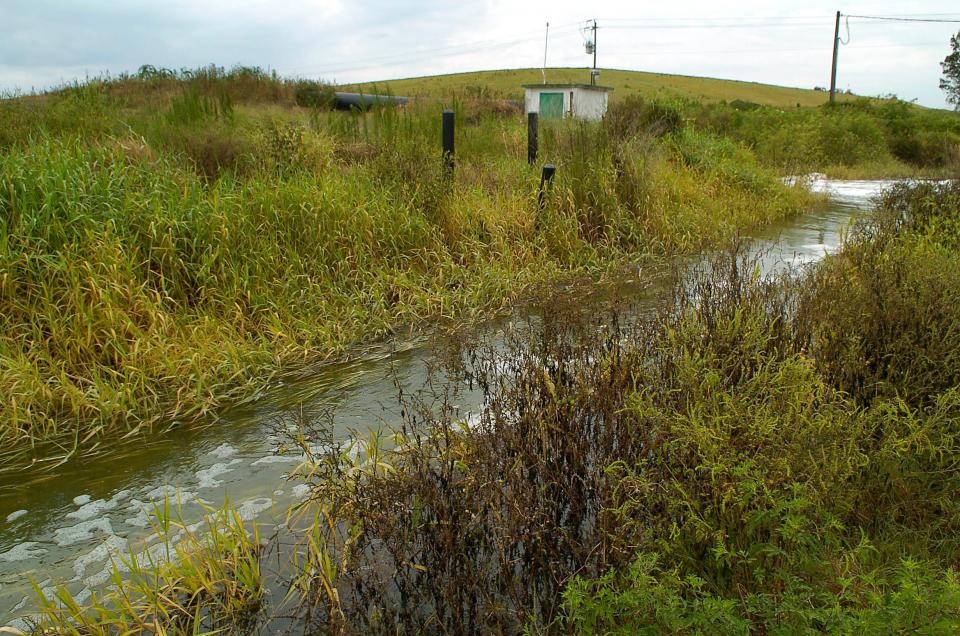Rural water crisis vital to health of the planet | Opinion
As we celebrate Earth Day 2024 and think about the health of the blue planet, there is no other crisis more important than where land meets water in rural America.
Water issues there have escalated into a dire situation that demands immediate attention. The groundwater we count on to supply America’s rural residents is facing a critical risk of overextraction and contamination. Surface waters are impacted by overapplication of fertilizers, as well as by septic tanks, sludge and animal manure. The intricate water and wastewater systems in rural areas are profoundly influenced by climate change and land use, emphasizing the urgent need for innovation and modernization to prevent catastrophic outcomes.
On this Earth Day, the call for action is clear: It is imperative for national leaders and citizens alike to take decisive steps toward addressing this emergency.
Water’s importance transcends mere consumption. It is indispensable for food production, recreation, and ecosystem health, especially in rural America where groundwater wells and septic systems form the backbone of daily life. The water systems in rural areas are intricate, encompassing a diverse range of features including tile drains, drainage ditches, small tributaries, ponds and lakes. These systems interface with both ground and surface waters on a larger scale and are profoundly influenced by climatic conditions including temperature changes, floods, droughts and extreme weather events.
Water quality and food safety are at risk not only from pathogens and forever chemicals, but excess nitrate (associated with new risks such as thyroid cancer) and antibiotic resistant bacteria. Animal fecal waste (manure) which is neither monitored or managed for pathogens is now a larger source of nutrient pollution and zoonotic diseases (estimated at 1.4 billion tons of manure per year in the U.S.).

The stakes are high for 46 million people who live in rural communities in the US. Their health and economic vitality is of upmost importance. These non-metropolitan areas provide 10% of the country's GDP and in 2022, approximately $1.420 trillion from agriculture, food and related industries, and $223.5 billion from America's farms.
Not to mention the economic impact associated with recreation and retirement destinations at the margins of larger cities such as in the Great Lakes region. For example, U.S. Fish and Wildlife Service estimates that angling generates $7 billion annually. When an individual beach is closed, seasonal aggregate losses were estimated at $360 thousand to $24 million.
Water and fecal waste management have unfortunately been overlooked within the USDA Strategic Plan for Fiscal Years 2022–2026. Although Goals 1 and 4, focusing on "Addressing Climate Change and Maintaining a Safe Food Supply," touch upon aspects of rural water systems and public health, there is a clear need for additional objectives in this area. Climate change exacerbates issues such as water scarcity and over-pumping of groundwater, while precipitation runoff and irrigation patterns contribute to the spread of pollutants and microorganisms. It's crucial to recognize that land management practices are at the root of these risks. However, despite the challenges, viable solutions exist and must be pursued to address these pressing issues effectively.
The State of Michigan has emerged as a leader in this realm, demonstrating the potential for science and technology to revolutionize water quality management. By modernizing infrastructure and embracing precision agriculture, alongside fostering public-private partnerships, significant strides can be made toward sustainable water management.
However, efforts to mitigate pollution and protect water quality must be intensified as poverty, inadequate water infrastructure and food insecurity are now becoming critical issues in the US. The time is now, given the Infrastructure Investment and Jobs Act and climate initiatives. This entails implementing best management practices in agriculture to reduce runoff and minimize chemical inputs, enforcing regulations to prevent industrial pollution, and promoting sustainable land use practices that preserve water resources in the coming years.
We support two new goals for addressing water in rural communities:
Improve the monitoring of ground and surface water quality using advanced and modern tools while building spatial and temporal data bases.
Address innovative approaches for controlling fecal pollution from septic systems, and manure and farm-based stormwaters along with resource recovery enhancing the circular economy.
Only by prioritizing investment in infrastructure, implementing and documenting pollution prevention measures and fostering community engagement can we begin to address the root causes of the rural water crisis. Only through concerted and collaborative action can we safeguard the health of our nation and secure a sustainable future for generations to come. The time to act is now; the health of our nation and the sustainability of our future depend on it.



Joan B. Rose is director of the Michigan State University Water Alliance, Homer Nowlin Chair in Water Research, Department of Fisheries and Wildlife. Matthew O. Schrenk is Michigan State University associate professor of Earth and Environmental Sciences and Microbiology and Molecular Genetics. Bruno Basso is Michigan State University John A. Hannah Distinguished Professor, Department of Plant, Soil and Microbial Sciences. Submit a letter to the editor at freep.com/letters.
This article originally appeared on Detroit Free Press: On Earth Day, learn about U.S. rural water crisis

